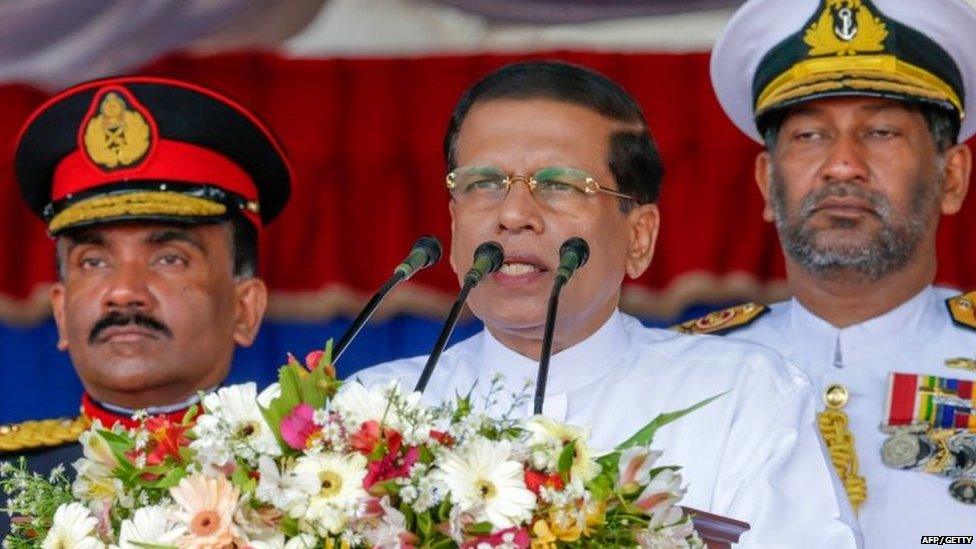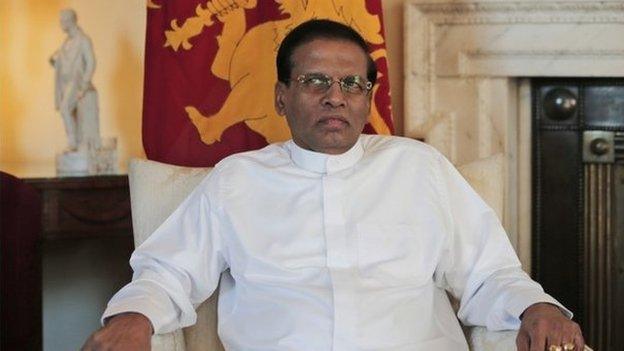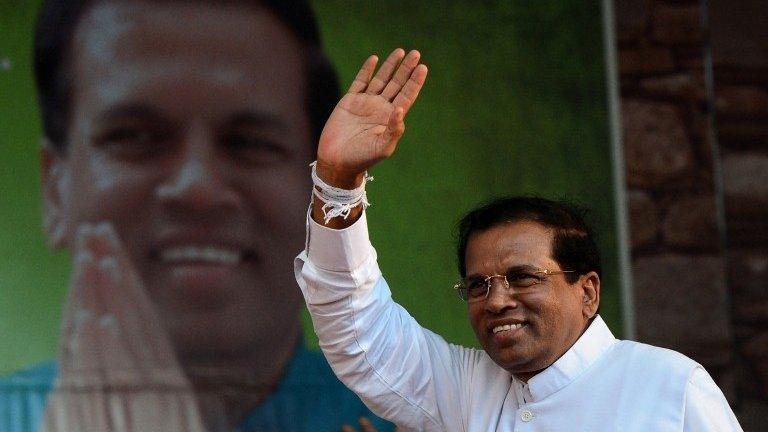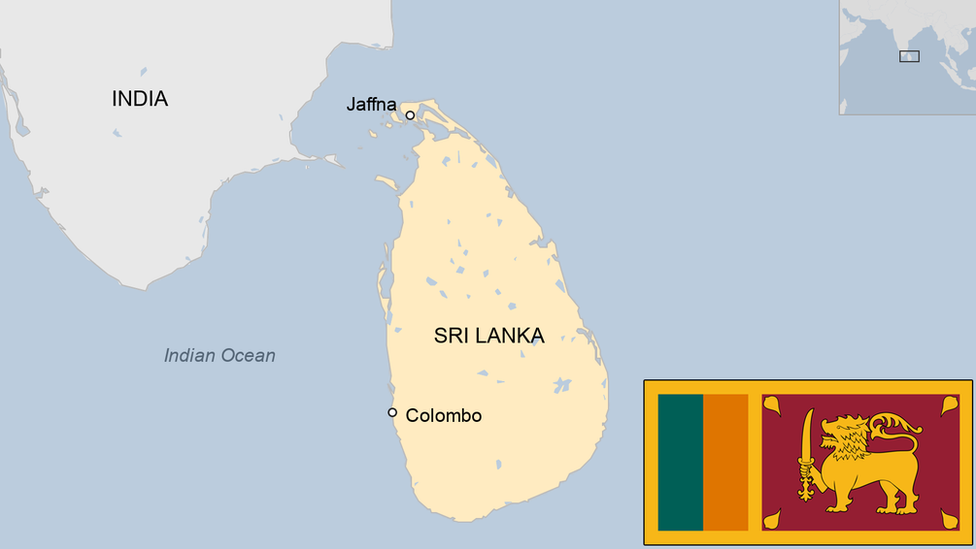Sri Lanka's president dissolves parliament
- Published

Maithripala Sirisena dissolved parliament with effect from midnight
Sri Lankan President Maithripala Sirisena has dissolved parliament, paving the way for an early general election.
"The president signed a gazette notification dissolving parliament with effect from midnight today," government spokesman Rajitha Senaratne said.
The general election was not scheduled for another 10 months.
Mr Sirisena defeated incumbent Mahinda Rajapaksa in presidential elections held in January.
The president's decision to dissolve parliament came shortly after a spokesman for the United National Party (UNP) said it had formally requested him to do so.
The UNP was the main party behind Mr Sirisena's presidential bid and its leader, Ranil Wickremesingha, is the country's prime minister.
Sri Lankan law dictates that elections be held between 52 and 66 days after the dissolution.
Government sources told the BBC that the election will be held on 17 August.
Sri Lankan election Commissioner Mahinda Deshapriya is scheduled to hold a news conference on Saturday where he will announce the dates.
The dissolution of parliament ends the term of the coalition government that was appointed for a 100-day period after the presidential election result. However, it exceeded that time limit as it sought to implement key constitutional reforms.
Former President Rajapaksa is expected to use the elections to stage a political comeback. He has previously announced that he intends to be the new prime minister.
- Published12 March 2015

- Published14 August 2015

- Published4 October 2024
